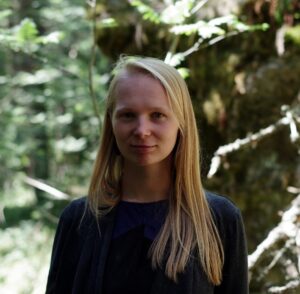By Heidi Maiberg
As an overseas PhD student, who recently started studying in the UK, I often feel that I am living in two countries at the same time. But now I am no longer comparing education systems and cultures – I am comparing responses to the COVID-19 pandemic.
The pandemic we are going through is historical. I am following the recommendation of psychologists and other social scientists, who have suggested that people keep a diary to preserve for the historical record as much information about the world and the changes we are going through, as possible. Here are some of my thoughts, emotions and experiences relating to the COVID-19 pandemic, that I first started to write down as a coping mechanism to find some balance in this hectic world, but which others like me might find helpful.
Before the diary
Timing is everything. As a PhD student, who has a full-time post in her home country, every day is planned thoroughly. The initial idea was to start writing the literature review for my thesis and submit the first draft to my supervisors at the end of March. As I had a business trip to Estonia planned for March 4-11, the idea was to focus on writing after my return to the UK. In April I intended to start contacting possible research participants for the study, to write a chapter on methodology and in May, to complete my ethics application, which would give my research the green light.
March 12
The Estonian government declares a state of emergency. Only essential services will be provided. Schools will be closed, and face-to-face learning will be replaced by online classrooms. 17 cases, 0 deaths. It is difficult to concentrate, as in the UK the number on deaths is higher, but the UK government seems to be taking everything in its stride as are some of my flat mates. I buy the essentials from the local store and start my self-isolation. It seems that it is already too late to go to Estonia, as Estonia and the neighbouring countries have started to close their borders.
March 15
Flat mates went to parties yesterday. One promised not to do it anymore, another one said that we should apply the social distancing rules sensibly. Meaning, it is still okay to meet people?
March 16
It is very difficult to concentrate. Besides answering emails for my day job, I am clicking from one news item to another. And then to Twitter. And then back to the news. The Estonian Ministry of Foreign Affairs has invited every Estonian back home. I have a feeling that it is already too dangerous to travel. I would like to go home, but me, my supervisor and some other people should have a meeting with our project funder in some days in London. I have no idea, how I get there from Egham in a safe manner. Book a taxi and pay a fortune?
March 18
The last ship from Germany is leaving to Estonia today. I don’t want to stay in this country, where the government is doing nothing to tackle the situation. Managed to finish some essential tasks for my day job, but nothing literature review related. Mainly reading news, looking for updates.
March 19
Plan was to concentrate and read some articles. Around 7 pm, the Estonian Ministry of Foreign Affairs announced that there will be a plane going from Norwich via Stockholm to Tallinn. I am usually very independent, but this time I had long discussions with my partner and my mother. I don’t want to place myself and others at risk by travelling, but I don’t want to stay in a country, where I am a foreigner and the government doesn’t seem to be taking the situation seriously. Bought the ticket. Started organizing transport from Egham to Norwich.
March 21
Travelling day. According to my initial plan, I was going to do some work en route, but it was too difficult to concentrate at the airport and during the flights, but also too dangerous to take my computer out because the virus stays on surfaces.
Arrived to Tallinn around 8 pm. Drove to Tartu, arrived around 11.30 pm. Everybody arriving from overseas has to stay at home in self-isolation for 14 days. Quarantine applies to all the members of the household. As my partner is a medical worker, I cannot go back home. Luckily, my neighbours, who have been in their country cottage for over a week, let me stay in their flat for the duration of the quarantine.
March 22
Do I have a fever? Is this a headache? Is this just me or do I have a cold? Partner brought some food and left it at the front door. Managed to get some work done.
March 23
First day of my 5-week leave at work. According to the initial plan, this would have been my full-on writing week. Managed to write one page. Too difficult to concentrate on longer texts than a tweet.
March 24
Had my annual review by MS Teams. It was an interesting conversation for sure. I borrowed a jacket from my neighbour’s closet for the review, as I am still avoiding opening my bags as it was stated somewhere that the virus might live on surfaces for more than 72 hours. My ability to work has decreased a lot. It seems that I am harder on myself than the university is, as I was told by the reviewers that I don’t have to be so strict with the deadlines. Still I have this constant feeling that if I don’t follow the preliminary structure and my original PhD survival plan, I will not have time to do all the work I want to do.
March 26
Recorded some lectures for my Sociology of Religion students. Burst into tears twice. I am talking more with my friends than usual. A task that usually takes one hour, took four.
I don’t have the strength to start writing. But I have found possible participants and interesting articles.
March 30
Managed to get some work done. Pre-COVID 19 average day = successful day in the world of pandemic.
April 1
Had a meeting with other PhD students. Managed to categorize articles that I have saved for myself. Also, wrote down some useful contacts and other tasks. Adjusted the timeline for my PhD as I have already missed some of the deadlines.
April 2
Wrote a draft version of a research questionnaire for one sample group.
April 3
Started COVID-19 diary. Neighbour had a virus test. Not sure about the result yet.
April 5
The neighbour’s test came back negative. My 2 weeks of quarantine is over. No symptoms developed, fortunately. I can move back home. Oh, joy!
April 8
Other PhD students are organizing biweekly work meetings on Zoom. Meeting lasts for 2 hours and everybody states the goal for the meeting and then we go on mute and switch off the cameras and start working. I am not sure was it the peer pressure from the group, the fact that I was working during the day-time instead of evenings as I usually do, but I managed to start working on a very useful report. I am behind with the schedule, but at least I read and wrote something. Baby steps.
April 9
Started a course on Coursera about research methods. Currently it is difficult to get necessary books. It is also difficult to concentrate on the material. For some reason, it is easier to watch a video and write down notes than to read and work independently.
My partner’s parents are going through financial difficulties. My partner and his brother are taking turns in talking with them and figuring out a plan for how to support them.
Flatmate had a call with our landlord about decreasing the rent. 4 of us are not living there and most likely I will not be there before September when the contract is due. The landlord promised to get back to us. What is the point of reading articles and discussing definitions, if my loved ones don’t know where they will get their meal next month?
April 11
Some of my close friends have depression, but I have never had symptoms. For some reason, this last week has been very draining. I am already tired when I wake up. I don’t want to be a hypochondriac, but I lack energy, and my mood and motivation are low. I function, but not as well as I usually do.
April 13
Decreased ability to concentrate is now affecting my day job as well. Mind goes wandering very easily and I suddenly discover that I have read some random news for 40 minutes.
One of my closest friends lost a grandmother today. They are not sure how to organize the funeral. She is devastated.
April 15
Tension headaches don’t even end in the morning.
It seems that the only time I am able to focus on the PhD is during the biweekly PhD student meetings.
April 19
In the evenings, instead of writing my literature review, I am chatting with friends and former colleagues or having movie nights with my partner and his younger brother who is 15 and living with their parents. These activities have not been a part of my schedule before, but I simply cannot turn down the calls or messages, when they come in. Despite my misgivings, I think it is okay to be socially active instead of working on the PhD. We are going through a pandemic and people are suffering. More and more friends are losing their income. Giving my time to them is the least that I can do at the moment.
April 24
Sort of the most successful week workwise during the pandemic. It seems that going to bed around 10 pm and waking up around 7.30 might give me enough energy to work for a good 5-7 hours. New approach is that I just do what I can. If PhD related tasks are among them, it is a success. If not, hopefully I will get round to them the next day.
Heidi Maiberg is a PhD student at Royal Holloway. Her doctoral research focuses on impact assessment of methods to support deradicalisation, disengagement and desistance of extremists.
Title photo by Alec Favale on Unsplash


